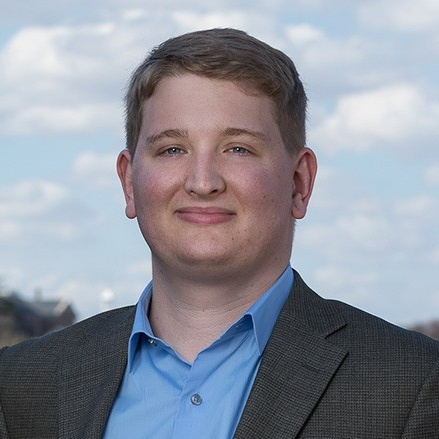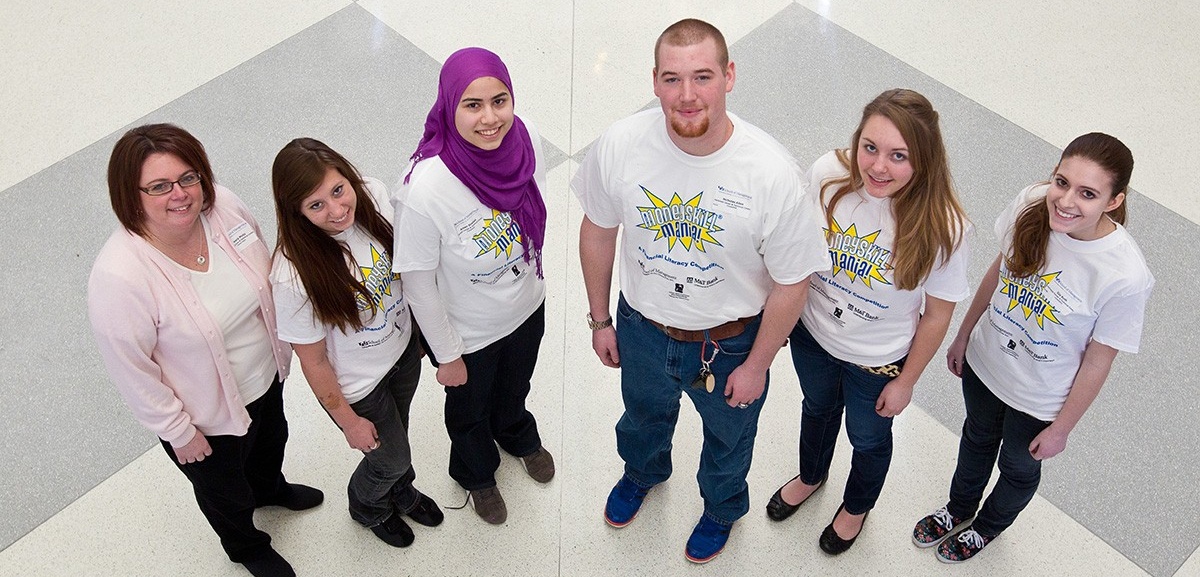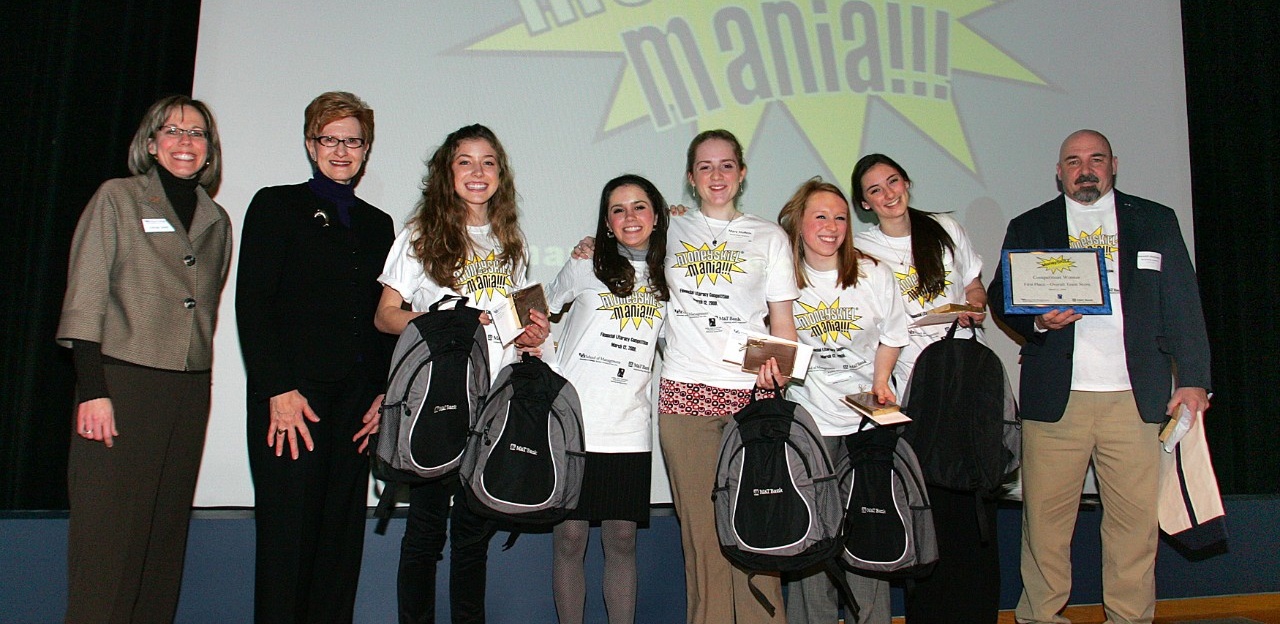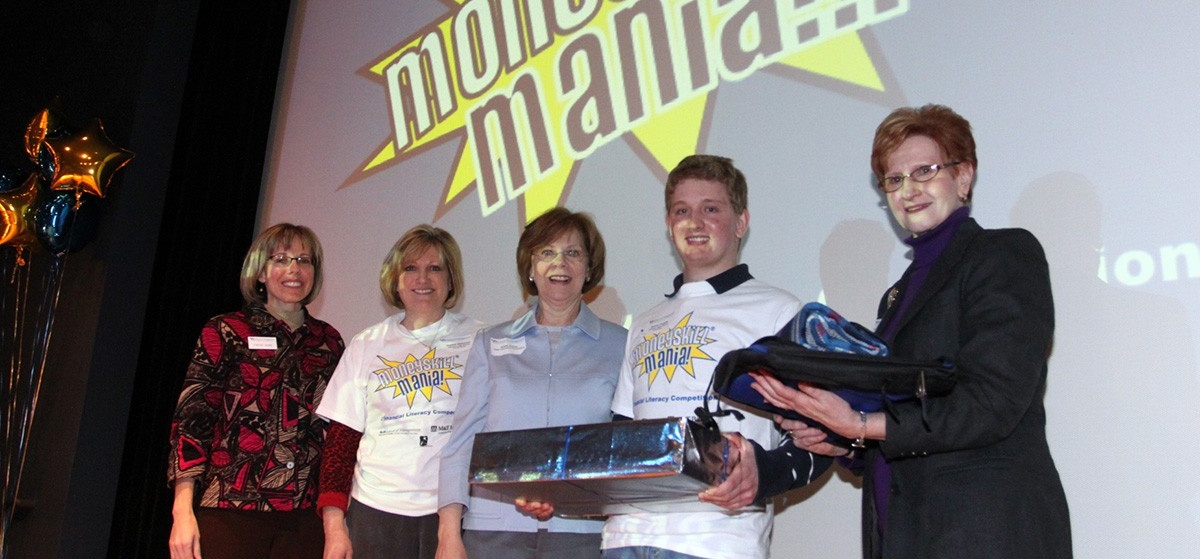Money matters
MoneySKILL Mania winners reflect on the program’s impact
By Matthew Biddle
Aman Shamaa was part of the winning MoneySKILL Mania team in 2012; today, she's a certified physician assistant. MoneySKILL Photos: Joe Eberle
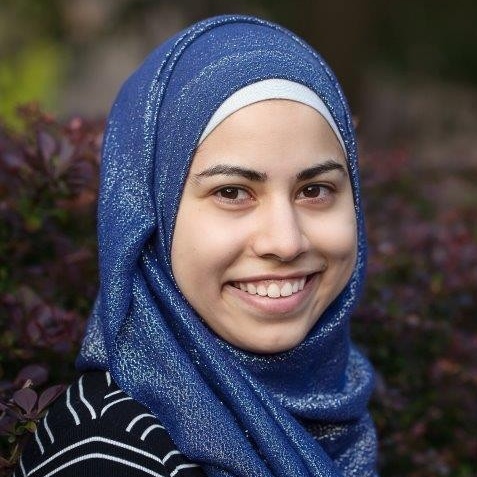
As teenagers approach high school graduation, they face nerve-wracking decisions that will affect their lives — and their financial situations — for years, even decades, to come.
Aman Shamaa remembers this well. But in her case, as she grappled with colleges and financial aid packages, she was able to pull from the knowledge she gained through MoneySKILL®, a free, online personal finance curriculum.
In 2012, Shamaa and her teammates from Harkness Career & Tech Center won the regional MoneySKILL Mania competition, sponsored by the School of Management and M&T Bank. She also took second place among individual students and, most importantly, was equipped with personal finance skills for years to come.
“MoneySKILL Mania could not have come at a better time for me,” says Shamaa, who is now a certified physician assistant at UBMD. “To this day, I find myself referring back to the information I obtained during preparation for this competition, whether it is purchasing my car insurance or investing in my retirement savings. The concepts I learned in high school from MoneySKILL are the same topics people tell me now they wish they had known earlier.”
The competition tests basic money management concepts covered by the MoneySKILL program, which was developed by Lewis Mandell, professor emeritus of finance, in collaboration with the American Financial Services Association Education Foundation. Since its inception, more than 850,000 students across the nation have enrolled in MoneySKILL, which includes 37 learning modules in such areas as saving, budgeting, investing, vehicle financing and renting versus owning property.
Locally, the School of Management and M&T Bank partner to provide outreach and teacher training, and host the MoneySKILL Mania competition. Since the partnership began in 2006, more than 22,000 Western New York students have boosted their financial literacy through the free program.
Now a PwC senior associate, Kelly Marco helped lead her MoneySKILL team to victory in 2009.
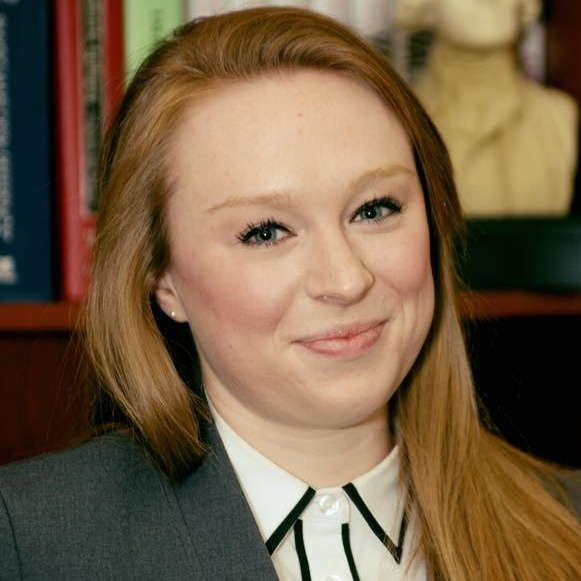
“MoneySKILL definitely made me aware of a lot of aspects of personal finance that I wouldn’t have otherwise been exposed to. I have a healthy understanding and respect for how my finance decisions affect me, both now and later down the road,” says Kelly Marco, a 2009 MoneySKILL Mania winner who went on to earn bachelor’s and master’s degrees in pharmaceutical sciences from UB, and her law degree from Georgetown University. She’s now a senior associate in the health industries advisory practice at PwC in Washington, D.C.
For Marco, the most interesting parts of the curriculum dealt with retirement planning and the differences between a 401(k), IRA and other long-term investments.
“It’s memorable because it was so foreign to me at the time that I had significant difficulty learning the material,” she says. “But now, as a young professional starting to chart out the rest of my life, the knowledge is invaluable.”
Jerome Trankle, BS ’14, won both the team and individual competitions in 2010 as a Clarence High School student. After graduating, he bought his first stock and enrolled as a business administration student in the UB School of Management, in part because of the affordable tuition rates. Eight years later, he’s still investing and using what he learned from MoneySKILL.
“MoneySKILL was a comprehensive program that gave us a solid foundation to build off of,” says Trankle, research associate at Axiom Strategies in Annapolis, Maryland. “Having that foundation has helped me attain a reasonably sound financial situation at 26. I am constantly calling upon my financial knowledge and building on it by reading financial news and advice.”
This year, the national MoneySKILL program launched a Spanish version and is fast approaching its 1 millionth student. In Western New York, the School of Management’s undergraduate honors students team up annually on projects to spread awareness for the program and the importance of financial literacy.
“I use MoneySKILL because the program is very user-friendly and incorporates a wide variety of financial terms and scenarios for students to learn from,” says Barbara Trietley, a business teacher at Leonardo da Vinci High School in Buffalo who has used the curriculum for the past 10 years. “It is so important for teenagers to at least have a basic understanding of personal finance so they can begin their adult lives heading in the right direction without struggling to fill their financial needs.”
Before graduating from the School of Management and moving to Maryland, Jerome Trankle was an individual and team MoneySKILL Mania winner in 2010.
